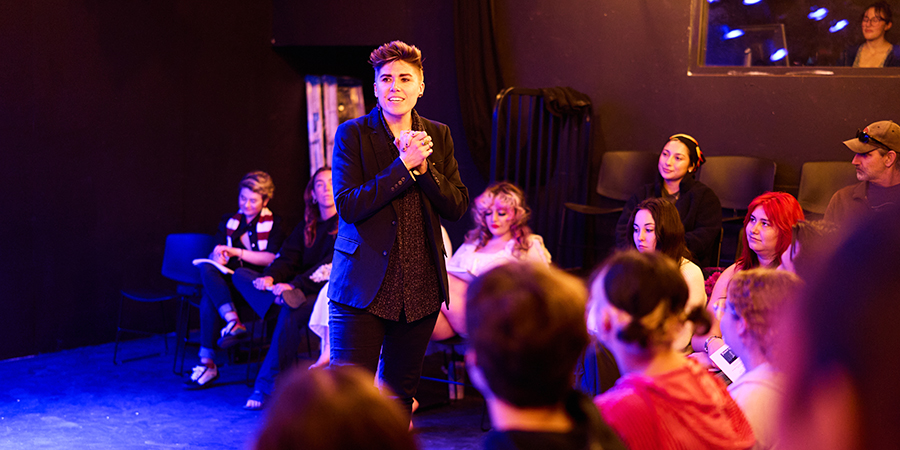Our Areas
- Design
- Acting, Voice, and Movement
- History, Literature, and Dramaturgy
Our Mission
The Theatre Arts Major supports the goals and objectives of Loyola Marymount University by offering an academically rigorous undergraduate education in the humanities. The study of theatre engages the whole person (body, mind, and spirit) and encourages students to see their studies in a broad social, ethical, and cultural context. The department approaches the study of theatre with the view that theatre is a laboratory for the study of the whole of life. The department is committed to diversity, equity, and inclusion as well as to cultivating an anti-racist ethos, practice, and support system.
Pillars of the University Mission
- The encouragement of learning
- The education of the whole person
- The service of faith and the promotion of justice
Department Learning Outcomes
The LMU Theatre Dept. offers a Bachelor of Arts degree rooted in the Catholic-Jesuit-Marymount-CSJ traditions and mission objectives of the university. The program also embodies the liberal arts ethos of intellectual independence, imagination, creative problem solving, analytical and critical thinking, superior communication skills, and the ability to create knowledge.
Students completing a major in Theatre Arts will:
- Develop fundamental skills in performance design and technology, embodied performance processes (acting, voice, movement), and reading, critical comprehension, and critical commentary on performance history and its associated literature.
- Understand performance as a cultural phenomenon rooted in cultural practices from across the world and as a reflection of intersectional gender, sexual, national, religious, and cultural identities.
- Value how theatre and performance can serve as a lens to comprehend and examine self, society, and the world.
- Experience diverse performances, texts, and designs within an inclusive production season and curriculum.
- Understand how skills inculcated and developed in a performative context can be applied across disciplinary and professional boundaries.
